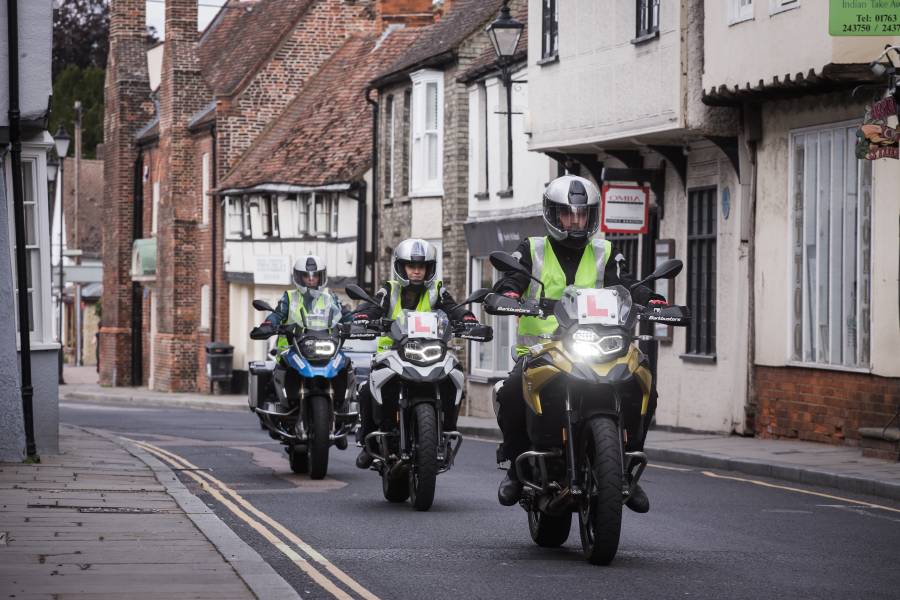MCIA Urges Government to Implement Essential Changes for Improved Motorcycle Training

The Motorcycle Industry Association (MCIA), alongside road safety charities, representatives from the business sector, local government, and motorcycle rider representative organisations, have signed a joint letter to the Secretary of State, highlighting the urgent need for improvements in Compulsory Basic Training (CBT) for motorcycles. The letter emphasises the critical role these changes can play in enhancing road safety across the UK.
The Driver & Vehicle Standards Agency (DVSA) indicated its support for various measures to improve moped and motorcycle safety as far back as 2017. Six years on, despite widespread support for CBT reform from road safety charities, motorcycle user groups, local authorities and business representatives, these vital improvements are yet to be implemented.
The current CBT framework, established over three decades ago, needs to be updated and improved to reflect the increasingly diverse nature of mopeds, motorcycles and other powered light vehicles (PLV) within our sector. MCIA and its partner organisations firmly believe that the time has come for the Government to revise the CBT program.
MCIA, in collaboration with the letter signatories, therefore, urges the Government to prioritise the implementation of these essential changes, which include:
- Introduction of a training course to upgrade motorcycle licence entitlements.
- Empowerment to revoke CBT certificates or impose measures for learner riders who accumulate six penalty points.
- Restriction of learners who complete CBT on an automatic transmission machine to riding only automatic machines.
- Provision for upgrading entitlement to manual for riders with such restrictions.
- Establishment of a combined CBT and DAS instructor qualification assessment.
- Limitation of the time period during which down-trained instructors can provide instruction.
- Revision of the CBT syllabus, including the requirement for instructors to ensure appropriate attire for trainees.
- Condensing the five elements of CBT into four.
- Strengthening the quality assurance scheme for motorcycle instructors.
- Introduction of a theory test as part of or prior to CBT.
- Digitisation of the CBT administration process.
- Implementation of earned recognition.
Tony Campbell, CEO, MCIA said: "I stand with the letter signatories in expressing our collective concern for road safety and the need to improve CBT. Although it is disheartening that despite the widespread support, the recommended changes proposed by DVSA following the "Improving Moped and Motorcycle Training" consultation, have yet to be implemented, together we can strive for safer roads and the well-being of all road users.
The time has come for the Government to listen and act. Let us work hand in hand to bring about the necessary updates and improvements to CBT, ensuring a safer and more inclusive future for moped, motorcycle and other powered light vehicle users across the nation."
MCIA believes these changes are fundamental to the advancement of safer motorcycling throughout the UK. With the alarming toll of 1,623 deaths and nearly 30,000 serious injuries sustained by motorcycle riders in Britain over the past five years, swift action is imperative. While some changes can be implemented quickly through statutory instruments, others may require primary legislation.
MCIA urges the Government to initiate the drafting of potentially life-saving legislation in preparation for a suitable opportunity to ensure our sector can continue providing society with its plethora of environmental, congestion and future of mobility-related benefits.
MCIA is keen to continue discussions with the DfT and eagerly awaits a response from the Secretary of State.
The signed letter can be viewed below.
Notes for Editors:
The MCIA is the body that represents the UK Powered Light Vehicle (PLV) industry. PLVs can be defined as motorised lightweight scooters, motorcycles, tricycles and quadricycles, typically with zero or low-emission power.
Within regulation they are defined L-Category vehicles (Regulation 168/2013), they are an answer to the traffic congestion and air quality challenges created by personal and goods transportation.
For more information about the work of the MCIA and Powered Light Vehicles, or to interview MCIA CEO, Tony Campbell, please contact Sean Waters at s.waters@mcia.co.uk.
